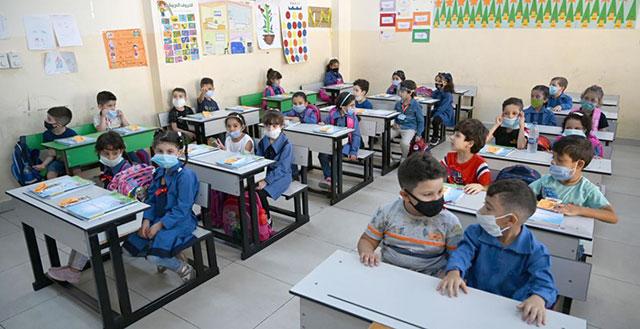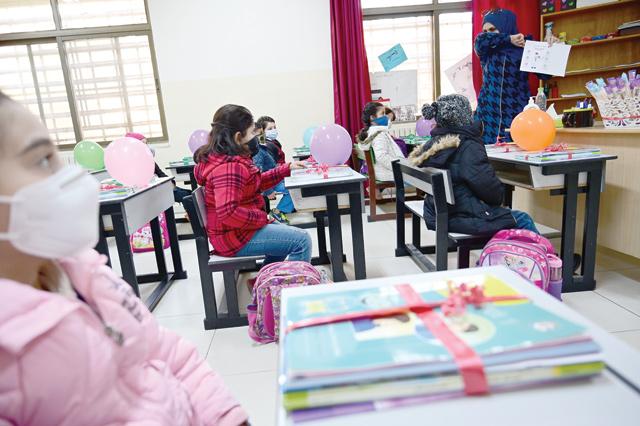You are here
In-class education continuity draws out mixed feelings of hope and anxiety
By Ahed Taha - Sep 29,2021 - Last updated at Sep 29,2021

Almost a month into the first academic semester, many parents, teachers and students expressed mixed feelings of anxiety and hope for the continuity of in-class education (JT file photo)
AMMAN — The role of teachers in integrating students in the learning process and the classrooms, especially amid the pandemic, is as important as the role of social workers, according to a sociologist.
Almost a month into the first academic semester, many parents, teachers and students expressed mixed feelings of anxiety and hope for the continuity of in-class education.
Hussein Khozai, a professor of sociology, said: “The first and foremost issue to be tackled is the integration process of students in the school’s environment.”
The process happens on various stages including the classroom environment, with their peers, the school’s disciplinary rules and time management, Khozai said, noting that it is both the responsibility of teachers and social workers alike.
Many mothers expressed how attending classes in-person has changed the attitude and feelings of their children.
“As the school started, my kids were very enthusiastic to attend classes at school and see their friends and teachers again, while they did not feel very energetic during remote education,” Jihan Zayed, a mother of a third grader and a seventh grader told The Jordan Times on Wednesday.
She added that her children have started to develop their friendships once again rather than spending the whole time behind the screen.
“Now they comeback every day so energetic to tell me about their friends and how they spent their time at school,” Zayed said.
Jana Sabatin, an eighth grade student, said: “I am really happy that we returned to school and I get to see my friends and teachers again.”
Parents have also said that returning to in-class education enhanced their children’s ability to better understand subjects.
Hadeel Hussein Abu Khalil, a working mother of two children, said: “As a mother of a second grader who had difficulties during the distance education period, I can tell the difference in his performance once we returned to in-class education.”
The return to in-class education has lessened the burden on working mothers, Abu Khalil told The Jordan Times.
Teachers also noticed the difference in students’ behaviours in classes.
“At the beginning of the semester, the students were mainly of two categories: Those who are very excited to go to school, and those with anxiety and fear of facing a new environment with new rules,” said Maha Abdullah, a teacher of second grade students at a public school.
She noted that it was hard for many students to start friendships and comply with the classroom rules.
“Students at this age are very sensitive to changes so we were very cautious and took that into consideration. Things are getting better day by day,” Abdullah added.
However, Kholoud Judo’, a mother and a private school teacher of 10th grade students, said that the emotions of her children and the students she teaches are now “totally different” than they were during remote education.
“Students now are very excited for the classes. However, they still need to be reminded of disciplinary rules in classroom because it is much different than remote education,” she noted.
Meanwhile, Aminah Al Hattab, a private school director, said that despite the excitement of students at the beginning of the year, many of the students developed “violent behaviours”.
“We noticed at the beginning of the semester that students still face a problem in time management because they were used to a different way of teaching. Many of them now resort to violence when facing any problems,” Hattab said.
She pointed out that the absence of a peer-learning experience in the previous period contributed to problems with their life skills, such as starting friendships.
Hattab also said that the role of social workers should be activated in order to raise students’ awareness of self-discipline.
“Mental health is the basic requirement for a successful learning process,” Khozai said.
Related Articles
AMMAN — The government’s decision to suspend in-class education to curb the spread of the coronavirus has evoked mixed reactions from parent
AMMAN — The Kingdom’s schools on Sunday started receiving the first batch of students for the 2020/2021 second semester, according to a plan
AMMAN — The government decision to continue with remote learning for school children have drawn ire from parents, teachers and student
















